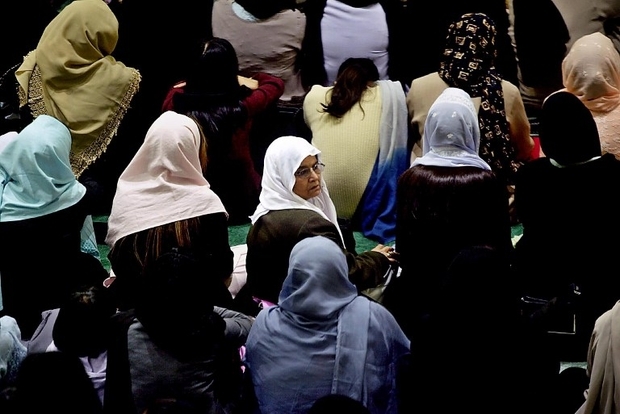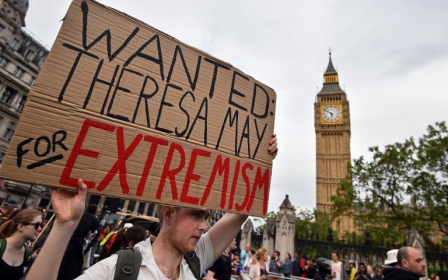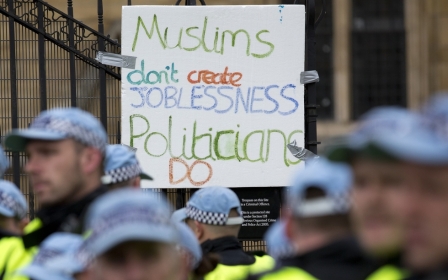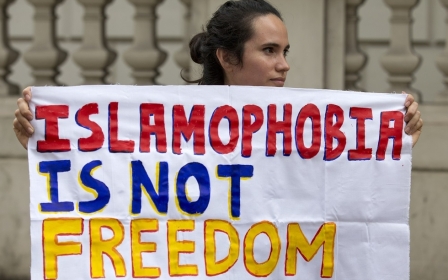Muslims in the UK: How change will come
None of us has a crystal ball or the ability to travel into the future to know what’s ahead so that we can better prepare. But in thinking through the future for British Muslims, given the context of Islamophobia and radicalisation, several important issues come to mind.
While the past is not a predictor of the future, there are a range of emerging trends and existing patterns that suggest the likelihood of certain outcomes.
Although the current reality suggests a disheartening future, change is inevitable. Particular structural preconditions determine specific outcomes - but Muslims are not without agency.
The educational divide
We live in post-normal times, which suggests that there are many social, political, cultural and geological issues shifting at enormous rates, preventing us from knowing the nature of their course with any degree of confidence.
Observation, however, shows us that individuals today can influence what happens tomorrow, challenging the instruments of power and bringing positive social change.
The Muslim population of Britain is undergoing a dramatic change to its socio-economic profile, including visible residential urbanisation and clustering in some of the country's older towns and cities. While there is a problem with educational underachievement among young Muslim men, the relative over-achievement of young Muslim women is not always realised when it comes to rates of participation in the labour market.
The speed, scope and scale of the uncertainty that we face today has to be disrupted by speaking truth to power
Gender equality needs to be a priority. But while the need to empower women is urgent, the focus should also be on empowering men, who face crises of masculinity in the context of neoliberal globalisation and hyper-localisation.
There has been a particular rise in dual-income middle-class Muslim households, where both heads possess advanced tertiary education. But there is also a Muslim brain drain as the pressures of racism, discrimination and cultural marginalisation suppress social mobility and foster a deep sense of under-appreciation.
Muslim Britain is young: one in three is under the age of 15, which is consistent with the population of the wider Muslim world. This dynamic has not shifted during the last decade-and-a-half. Nearly half of all refugees in the US are of Muslim origin, and conflicts often centre on the Muslim world. As the Muslim world is that most affected by capitalism, so it faces the greatest consequences of the destabilisation of capitalism.
Breaking the cycle of hate
Islamophobia can drive different forms of radicalisation, which in turn feed more Islamophobia.
It is important to break this cycle - but before this can happen, Muslim communities must firmly own both concepts and define them from within.
This means engaging with the state in a meaningful dialogue. The speed, scope and scale of the uncertainty that we face today has to be disrupted by speaking truth to power.
We also live in a world of great ignorance and arrogance where the consequences of globalisation and unfettered capitalism are palpable. The present world order is bereft of any fresh ideas, partly due to the failures of many previous ideas, as political Islam and Western liberalism have both collapsed.
For Muslims, there are particular problems around the hyper-masculinity of men and the unreconstructed nature of patriarchy that exists within households, although this continues to improve slowly in wider society. Thus, there is a divergence between the Muslim male mind at home; and the workings of wider society with respect to the role and position of both Muslim men and women.
There is also an issue in all societies where people believe in the absolute truth of their knowledge yet lack the wisdom or ability to think outside of their own self-contained box. This affects all parts of society, including those with privileged access to power, status and the ability to define society’s image based on their own self-image.
We must be willing to change
As the wider forces of hyper-capitalism and neoliberal globalisation remain unchecked, Muslim minorities face several internal challenges, as well as the ongoing effects of an unreconstructed patriarchy. They face a real risk of lagging further behind the curve.
It is already emerging that Muslim women will play an even more important role in determining the nature and future of British Islam. Muslim women will increasingly participate in the labour market and be part of joint-income households, improving the balance of family dynamics. Assimilation is not inevitable, but further integration is desirable if Muslims are to gain the power, position and potential to bring positive change to wider society.
Revolution can exist within a form of evolution. In this vein, the decolonising of our minds – especially those of Muslim men – is crucial. Everything is possible, but only if we truly open our hearts to the teachings of a faith that is open and honest.
We must also be willing to change, as change we now must. The decolonisation of our future in favour of a diverse world must be conditioned by an appreciation that structure is inherently able to reproduce itself, while agency is limited. There are unquestionably real concerns over the future of Muslim men, but the role of women in providing men with a rebirth is already emerging.
- Professor Tahir Abbas FRSA is currently visiting senior fellow at the department of government, London School of Economics. His recent books are Contemporary Turkey in Conflict: Ethnicity, Islam and Politics (Edinburgh University Press, 2016), and the four-volume edited collection Muslim Diasporas in the West (Routledge, 2017). He recently published an article on the ‘Trojan horse’ plot, published as ‘The Inside View on the “Trojan Horse” Plot and British Muslims in Schools’ in the Journal of Muslim Minority Affairs (2017).
The views expressed in this article belong to the author and do not necessarily reflect the editorial policy of Middle East Eye.
Photo: Demonstrators protest against Islamophobia in Birmingham on 24 March 2017 (Reuters)
New MEE newsletter: Jerusalem Dispatch
Sign up to get the latest insights and analysis on Israel-Palestine, alongside Turkey Unpacked and other MEE newsletters
Middle East Eye delivers independent and unrivalled coverage and analysis of the Middle East, North Africa and beyond. To learn more about republishing this content and the associated fees, please fill out this form. More about MEE can be found here.






